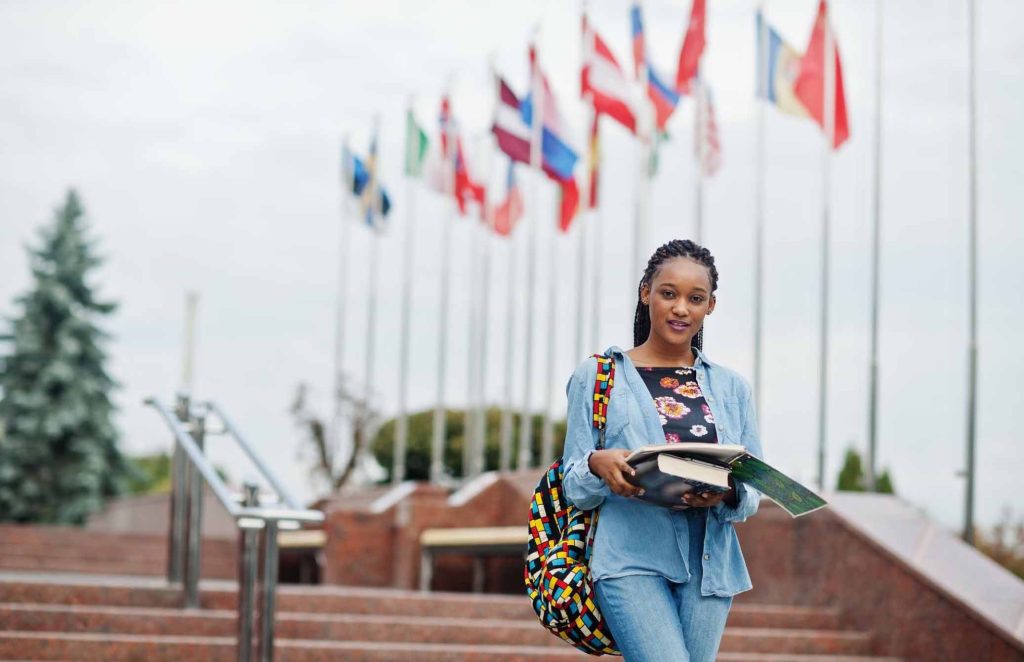
While embassies are often associated with diplomacy and international relations, their roles extend far beyond political affairs. Embassies are key players in the realm of education, actively supporting the pursuit of knowledge and fostering cross-cultural understanding. This article explores how embassies contribute to education by offering quality higher education opportunities, scholarships, and initiatives like the Fulbright Program that strengthen the bonds between nations.
Embassies function as catalysts of change, empowering students to pursue quality higher education. They understand that education is not just a personal aspiration but also a force that propels entire nations forward. Thus, they facilitate access to educational resources and opportunities that have the potential to transform lives.
Education at Home and Abroad
Embassies play a dual role in promoting higher education. Firstly, they work tirelessly to enhance the educational landscape in their home countries. By partnering with local institutions, they create an environment conducive to learning and research, ensuring that students have access to world-class education without leaving their homeland.
Secondly, embassies facilitate education abroad. They offer a gateway to international learning experiences by connecting students with prestigious universities and scholarship programs worldwide. This bridge to global education broadens horizons, fosters academic growth, and instills a global perspective.
A Transformative Force
The impact of quality higher education extends far beyond individual growth. It is a transformative force that shapes the destiny of nations. When students are equipped with knowledge and skills that meet global standards, they become agents of change, driving innovation, economic growth, and social progress within their communities and countries.
The Role of Scholarships
One of the most effective tools in embassies’ arsenal for promoting higher education is scholarships. These financial grants open doors for deserving students, allowing them to pursue advanced degrees and research opportunities. Scholarships empower individuals who may not have had the means to access quality education otherwise, breaking down socio-economic barriers.
Contributing to National Development
Embassies understand that the development of nations is intricately tied to the education of their citizens. By nurturing a skilled and educated workforce, embassies contribute to the overall development of their home countries. Quality higher education equips individuals with the expertise and innovative thinking necessary to tackle complex challenges, from healthcare to technology and beyond.
Scholarships as a Pathway to Excellence
One of the most impactful ways embassies support education is through scholarships. These financial grants are awarded to outstanding students, enabling them to pursue higher education in foreign countries. Scholarships serve as a pathway to excellence, allowing talented individuals to access world-class education and research opportunities.
The Fulbright Program: Bridging Minds and Cultures
The Fulbright Program stands as a shining example of how embassies promote cross-cultural understanding and academic exchange. Named after Senator J. William Fulbright, this initiative facilitates the exchange of students, scholars, and professionals between the United States and other countries.
Key Elements of the Fulbright Program
- Academic Exchange: The Fulbright Program enables individuals from diverse backgrounds to study, teach, and conduct research abroad, promoting a free flow of ideas and knowledge.
- Cultural Immersion: Participants not only engage in academic pursuits but also immerse themselves in the culture and daily life of their host country. This firsthand experience fosters a deep appreciation for diverse perspectives.
- Building Relationships: The Fulbright Program strengthens family ties between nations by creating lasting connections between individuals, institutions, and governments.
Impact on Individuals and Nations
For individuals, participating in the Fulbright Program is a life-changing experience. It broadens horizons, enhances academic and professional skills, and instills a deep appreciation for global interconnectedness.
On a broader scale, the Fulbright Program and similar initiatives contribute to the development of a global community of scholars and leaders who work together to address shared challenges. These programs promote mutual respect, tolerance, and peace by breaking down barriers and fostering cross-cultural collaboration.
Embassies play a vital role in education, offering quality higher education opportunities, scholarships, and initiatives like the Fulbright Program that transcend borders and strengthen the bonds between nations. By actively supporting academic exchange and cross-cultural understanding, embassies not only nurture minds but also contribute to a more interconnected and harmonious world.
